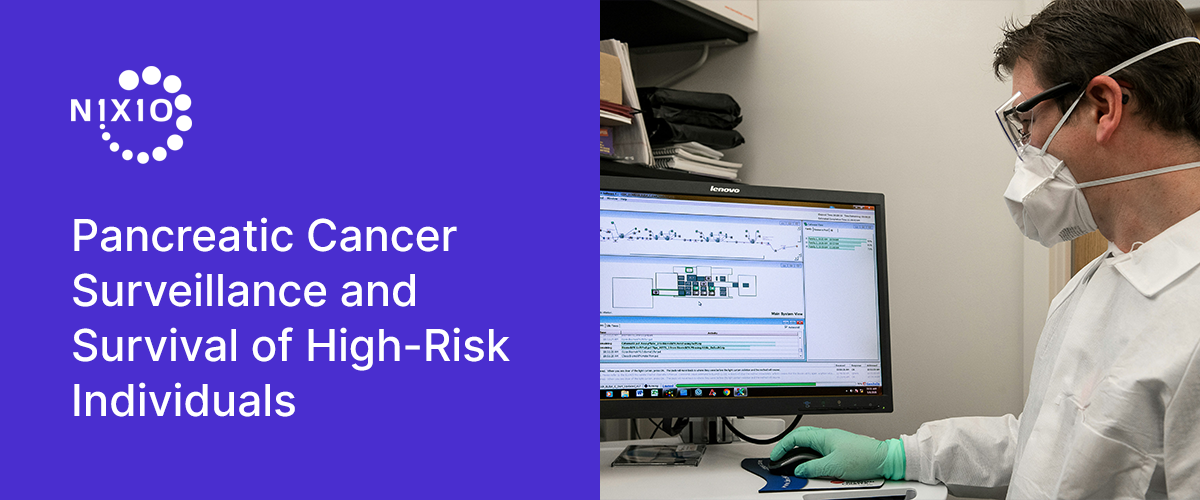September 2024 | George M. Pikler, M.D., Ph.D., FACP, Lead Oncology Advocate N1X10
Pancreatic ductal adenocarcinoma (PDAC) is the third leading cause of cancer-related death in the United States and is expected to become the second leading cause by 2030. The majority of patients with PDAC present with locally-advanced or metastatic disease, when they may be ineligible for a curative resection. The overall and cancer-specific 5-year survival for patients with PDAC are 11% and 13% respectively. Patients with resectable stage Ia PDAC have a 5-year survival rate of approximately 84%, which underscores the potential for improved outcomes through early detection.
Two recent studies underscore the potential of surveillance and early detection to improve the survival of high-risk PDAC patients.
A comparative cohort study conducted in multiple US academic medical centers participating in the Cancer of the Pancreas Screening program (CAPS), screened 26 high-risk individuals with a familial or genetic predisposition for PDAC using endoscopic ultrasonography (EUS) and/or MRI. The comparison cohort comprised 1504 patients with PDAC matched for age, sex, and year of diagnosis from the Surveillance, Epidemiology, and End Results (SEER) program.
The findings of the study showed that high-risk individuals who underwent annual or semiannual surveillance EUS and MRI and who were diagnosed with PDAC had a greater likelihood of having smaller, lower-stage tumors; lower PDAC-specific mortality; and better OS (5-year rate, 50%) compared with a national cohort (5-year rate, 9%) matched for age, sex, race, and year of diagnosis and with similar tumor location and type of surgery. These findings suggest that selective surveillance of individuals at high risk for pancreatic cancer may improve clinical outcomes. “We’re learning that when patients are diagnosed at an earlier stage, and especially at stage I, they achieve a dramatically different long-term survival than people who were diagnosed with stage IV disease,” said study coauthor Michael Goggins, M.B.B.Ch., M.D., who directs the Pancreatic Cancer Early Detection Laboratory at Johns Hopkins.
In a second new study, William J. Kane, M.D., and his colleagues at the University of Virginia reported that people with an elevated risk of pancreatic cancer who underwent surgery for pancreatic cancer detected by screening lived longer than average-risk patients who underwent surgery for pancreatic cancer at the same institution and were not screened.


